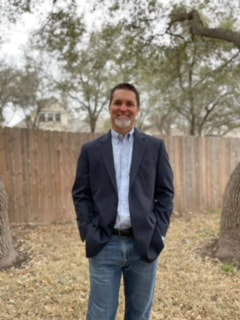I was particularly stoked recently when, not only did my oldest start a job at Chick Fil A, but her sister told me she was going to apply to Home Depot. “It’s certainly a (labor) seller’s market,” I told her.
Uncle Sam is doing his darndest to make it so, albeit not in the ideal way.
Ever since pounding the economy into submission with overbearing lockdowns, misallocated spending, and burdensome rules, erroneously blaming the pandemic the whole time, he’s been attempting to patch up the damage with enhanced unemployment benefits, ‘stimulus’ checks, etc.
I’m reminded of a nephew pushing one of his brothers almost out of a moving truck. After catching him, he bragged to their mother “I saved him!”
The core reason my girls can command high starting wages is because they’re competing against relatively fewer workers. When employers are faced with that reality, they have to pay more to acquire labor.
To state the obvious, high wages are good.
In a free society, they’re the natural outgrowth of higher market value produced. In some cases, they attract more capital investment that allows us to do more and/or create value in other, newer areas.
When they’re the result of pro-active government policy however, they unfairly threaten the existence of the employers forced to pay them.
Big Business can typically manage the nuisance. Their bottom line is big enough to absorb the hits. They also have more resources to automate some processes over the long haul.
Not so much for the little guy.
Getting an enterprise off the ground means heightened pressure to keep a lid on expenses. That’s why it’s not uncommon for owners to refrain from taking (much of) a salary at the outset.
But even the distinction between big business and small business can be blurry.
A friend who franchises a major North American hair salon told me that stylists have “not all come back” to work. “Unemployment is really hurting us.” I’ve heard similar concerns from franchisees before.
It’s a microcosm of what’s going on across the country, where an hourly wage of almost $17 is “in line with what many people receive (in) unemployment benefits.”
One could be forgiven for mistaking that as a backdoor push for a minimum wage beyond $15.
Not content to rest on their laurels (to the extent that they can be seen as such), Democrats in Washington D.C. want to pile on.
Among other ‘free’ stuff they want to bill to higher taxes on the rich is a $225 billion paid sick leave program. Part of that would mandate employers provide seven days per year.
They also want to strip some autonomy from those franchisees by tying them closer to their corporate sponsors. Part of the fallout there would be a greater susceptibility to unionization of their employees.
To keep their doors open, some businesses have to pass subsequent increased costs on to consumers. While we finance this bloat on one hand, we subsidize the unemployed on the other.
Though most are not wired to abuse the system, there are just enough who selectively pass on more than 8 million job openings.
And these are just the folks counted in the labor force.
When it comes to macroeconomic measurements, I implore my students to get the whole picture. Though the unemployment (UE) rate gets the headlines, there is another, equally important figure that gets less attention; the labor force participation rate (LFP).
A 5% UE is good, but when only 60% of able-bodied adults are in the labor force (with a job or actively looking), 43% of the populace still isn’t working.
That same 5% UE applied to a 70% LFP means only a third are inactive.
Before governments overreacted to the coronavirus, the LFP was rising while UE was setting record lows on a monthly basis. Now, both are sputtering: the former two points lower; the latter, three points higher, respectively.
To his credit, President Biden recently said unemployment benefits are at risk if a “suitable job” is turned down. In the same breath however, he doesn’t “see much evidence” that they deter the job search.
For a group of fellow travelers who routinely talk about “common sense” policy, they seem to lack the core component.
If my daughters benefit from these ill-conceived policies, so be it. After all, a chunk of their earnings will eventually be used to pay for the wreckage wrought by the government on college tuition. Ironic.
Still, it’d be ideal in the long-run if elitists in government and academia set aside their models, and hence their egos, and simply let people work for/with each other unobstructed.


 RSS Feed
RSS Feed